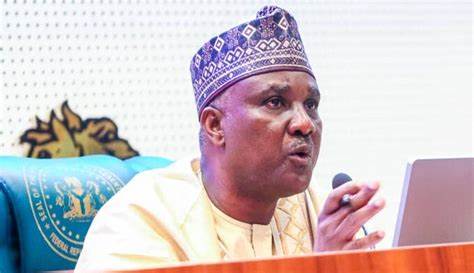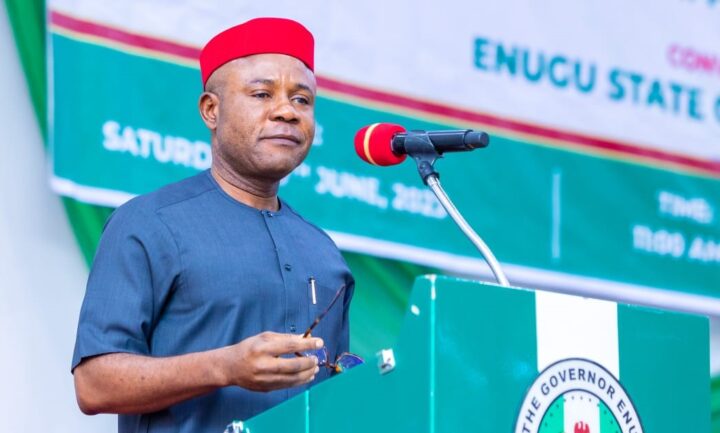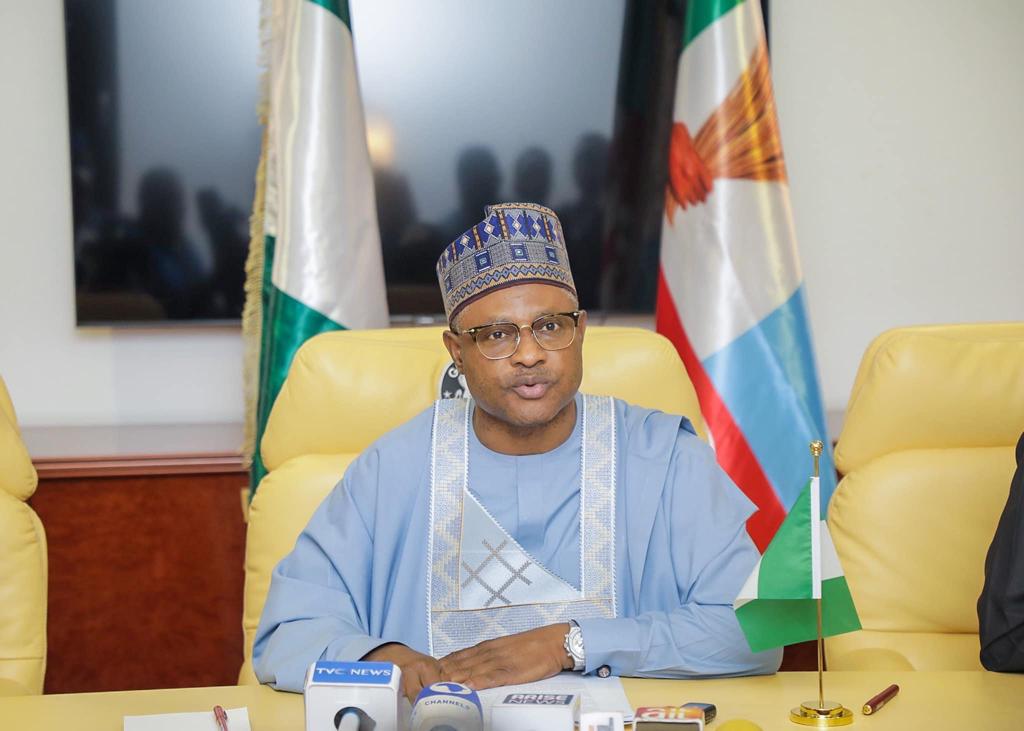BY ABEJIDE OLUSEGUN
Dear Mr. President,
As the leader of our esteemed nation, you possess the authority to influence the trajectory of Nigeria’s future. Today, I write to urge you to embrace a compelling and transformative vision for revitalising our nation’s economy. During these challenging times, it is important to prioritise the development of key sectors that will lay the groundwork for sustainable growth and prosperity.
I respectfully request, Mr. President, that you exercise caution in distributing funds to Nigerian citizens without proper consideration. Instead, let us allocate these resources towards revitalising the formerly prosperous companies of the 70s and 80s that brought pride to Nigeria. These companies were once the pride of our nation and have the potential to be revived to their former glory. Investing in them will enable us to generate job opportunities, stimulate economic growth, and regain our position as a powerhouse in Africa.
Advertisement
Mr President, in order to ensure the success of this endeavour, particularly the one centred around your important speeches recently regarding the allocation of funds and distribution of palliatives, it is crucial that we learn from past mistakes and make a conscious effort to avoid repeating them. I urge you to exercise caution when carrying out the implementation. That is where your success and failure lie.
Industrialisation holds the key to unleashing Nigeria’s full potential. We can strengthen our economy by investing in industries and promoting local production, which will help reduce our dependence on imports. Agriculture, specifically, shows great potential. By making appropriate investments in research, adopting modern farming techniques, and developing value-added industries, we have the potential to enhance productivity, guarantee food security, and empower our farmers.
Establishing effective markets for our agricultural products is of utmost importance. A well-functioning market system not only ensures that farmers receive fair prices but also stimulates economic activity and creates opportunities for businesses to thrive.
Advertisement
A robust and accessible healthcare system is essential for the well-being of a nation. Dear Mr. President, I strongly encourage you to prioritise investments in healthcare infrastructure, human resource development, and primary healthcare services. Universal health coverage aims to guarantee that all Nigerians have equal access to high-quality healthcare, regardless of their socio-economic status
Education plays a crucial role in fostering the development of human capital and driving economic growth. By allocating a significant portion of our national budget to education, we can empower our youth with the necessary skills and knowledge to thrive in the digital age. Promoting technical and vocational education can effectively tackle the problem of unemployment by offering practical skills that are in line with the demands of various industries.
Finally, it is imperative that we prioritise the enhancement of our electricity infrastructure. Having a dependable and consistent power supply is crucial for the progress of industries, the generation of employment opportunities, and the overall welfare of our population. We should prioritise diversifying power sources and implementing necessary reforms in the power sector. This will help attract private investments and increase generation and distribution capacity.
Dear Mr. President, the responsibility for Nigeria’s revival rests in your hands. We should prioritise the revitalisation of our industries, with a specific focus on sustainable development. Additionally, it is crucial that we address corruption and mismanagement directly and proactively. By investing in key areas such as agricultural farming, a strong market system, quality healthcare, education, and electricity, we have the potential to build a Nigeria that fills us all with pride. Let us join forces and dedicate ourselves to revitalizing our economy, empowering our citizens, and ushering in a period of prosperity that benefits all Nigerians.
Advertisement
Nigeria, once regarded as a promising economic powerhouse in Africa, is currently going through a difficult time that is characterized by economic stagnation and widespread decadence. In order to guide the nation toward sustainable growth and development, it is essential to embrace a comprehensive approach that prioritises key sectors and tackles fundamental issues that are affecting the economy. This article will examine a roadmap for revitalising Nigeria’s economy through the prioritization of key areas such as quality agricultural farming, a robust market system, a well-functioning health system, education, and improved electricity infrastructure. Furthermore, we will explore the significance of investing in the revitalisation of formerly prosperous industries such as the Nigerian Textile Mills (NTM) and Dunlop. Additionally, we will tackle the problems of corruption and misallocation of public funds, which have impeded progress in the past.
Quality agricultural farming and market system
For centuries, agriculture has served as the foundation of Nigeria’s economy, offering employment and sustenance to millions of individuals. In recent times, the agricultural sector has encountered several challenges. These challenges include insufficient infrastructure, low productivity, and limited access to modern farming techniques. In order to revitalise the agricultural sector, it is crucial for the government to prioritise the advancement of high-quality agricultural farming. This can be achieved by:
- Investing in research and development (R&D) is a crucial strategy for businesses: Investing in agricultural research and development is crucial as it will result in the development of innovative techniques, crop varieties, and best practices. This, in turn, will lead to increased productivity and help ensure food security.
- Modernising farming techniques: In recent years, there has been a growing need to modernise farming techniques. This is due to various factors such as increasing population and climate change by adopting contemporary and environmentally friendly farming techniques like precision agriculture and agroforestry, we can improve efficiency, minimise waste, and preserve our precious natural resources.
- Ensuring access to financial services: By facilitating access to credit and microloans, small-scale farmers can be empowered to invest in modern inputs and technologies. This, in turn, will result in improved yields and increased income for them.
- Promoting agribusiness and value addition: By encouraging agribusiness ventures and value-addition industries, we can create employment opportunities and foster economic growth in rural areas.
- A well-functioning market system: This is essential to complement quality agricultural farming. The government should establish a supportive environment that allows farmers to easily access markets and guarantees fair prices for their agricultural products. Achieving this goal involves implementing strong agricultural markets, improving transportation infrastructure, and addressing the issue of middlemen taking advantage of farmers.
Quality health system
Advertisement
A healthy population is vital for economic growth and development. Investing in a quality health system is imperative to improve healthcare access, reduce mortality rates, and boost productivity. The government should focus on:
- Strengthening primary healthcare: Prioritising primary healthcare services will enhance preventive measures, reduce the burden on secondary and tertiary facilities, and improve overall health outcomes.
- Improving healthcare infrastructure: Investing in modern healthcare facilities, equipment, and technology will attract skilled healthcare professionals and ensure quality care for all citizens.
- Human resource development: Training and capacity building for healthcare professionals will address the shortage of skilled personnel and enhance the delivery of healthcare services.
- Universal health coverage: Implementing a robust health insurance scheme will ensure that all Nigerians have access to affordable and quality healthcare services.
Education
Advertisement
Education plays a crucial role in driving both economic and social transformation. An educated population plays a vital role in driving innovation, enhancing productivity, and fostering the development of human capital. To improve the education sector, the government should take into account the following measures:
- Increased budgetary allocation: It is important to carefully consider how we distribute our resources by dedicating a substantial portion of the national budget to education. We can foster the advancement of top-notch infrastructure, offer comprehensive training for teachers, and guarantee the accessibility of essential learning materials.
- Promote technical and vocational education: This is of utmost importance because it provides students with practical skills that are directly aligned with the demands of various industries. By doing so, it helps decrease unemployment rates and contributes to the overall growth of the economy.
- Improving teacher welfare: This is crucial because it helps attract and retain qualified educators, ultimately enhancing the quality of education. Achieving this goal can be accomplished by placing emphasis on key factors such as establishing a competitive salary structure and offering abundant professional development opportunities for teachers.
- Embracing digital learning: This is crucial for enhancing access to quality education, particularly in underserved regions, and equipping students with the necessary skills for the digital age. Integrating technology into the education system is an effective way to achieve these goals.
Enhancing Electricity Infrastructure
Advertisement
In this section, we will discuss the importance of improving electricity infrastructure and its benefits.
- Target consistent supply of electricity: This is of utmost importance when it comes to fostering industrial development, creating job opportunities, and promoting economic diversification.
- Diversify electricity generation sources: Investing in renewable energy sources, such as solar, wind, and hydroelectric power has the potential to decrease our reliance on fossil fuels and improve energy security.
- Improve transmission and distribution networks: Investing in modern transmission and distribution infrastructure has the potential to significantly reduce energy losses and guarantee a reliable electricity supply for consumers.
- Extend electricity access to rural communities: This has the potential to stimulate economic activities, enhance living standards, and mitigate urban migration.
Revive once-thriving industries
Advertisement
Reviving industries such as the Nigerian Textile Mills (NTM) and Dunlop will have dual benefits of boosting economic growth and creating job opportunities for the youth. The government should consider:
- Performing industry assessments: Conduct thorough assessments of industries that were once prosperous in order to identify the underlying reasons for their decline and develop appropriate strategies to revive them.
- Providing financial support: We should allocate financial resources towards revamping existing industries, modernising equipment, and improving production processes.
- Promoting the establishment of public-private partnerships: Promote partnerships between the government and private sector to encourage investments and expertise that are essential for revitalising industries.
- Tackling policy and infrastructural challenges: This will help create a conducive business environment for the revival of these industries.
Tackle corruption and mismanagement
Corruption and mismanagement of public funds have posed major hindrances to Nigeria’s economic progress. In order to address this issue, the government should:
- Promote transparency and accountability: Establish and enforce measures that guarantee transparency and accountability in the management of public finances, procurement procedures, and public services.
- Enhance the effectiveness of anti-corruption agencies. It is crucial to provide anti-corruption agencies with sufficient resources and independence to effectively investigate and prosecute individuals involved in corruption, ensuring that the process is free from any bias.
- Promote ethical leadership: It is important to encourage ethical leadership and foster a culture of integrity within all levels of government and public institutions.
- Whistleblower protection: Implement measures to safeguard individuals who expose corrupt practices, ensuring their safety and promoting citizen engagement in the fight against corruption.
In order to effectively guide Nigeria towards a brighter and more prosperous future, it is essential for the new government to exhibit commitment, transparency, and visionary leadership. Nigeria can only rise from its current state of economic decadence and become a thriving and developed nation through collective efforts and a holistic approach.
Views expressed by contributors are strictly personal and not of TheCable.






